Individual Memorial
Ernesto Guevara Guevara
Date of death: Monday, 9 October 1967
Biography & Footprints
Ernesto Guevara de la Serna was born to a middle-class family in Rosario, Santa Fe Province, Argentina, on June 14, 1928. Disgusted by the corrupt Argentine military dictatorship, Guevara became a dedicated Marxist while in his teens. As a student he vowed to devote his life to revolutionary causes, and in 1953 he received a medical degree from the University of Buenos Aires. He left Argentina later that year to take part in a Communist revolt in Guatemala. There he adopted his revolutionary nickname and nom de guerre of "Che", the local slang for "pal." When the revolution in Guatemala failed the following year, Che fled to Mexico where he was introduced to another Communist revolutionary in exile, Fidel Castro. Joining Castro's July 26 Movement, named after the date of Castro's aborted 1953 revolution in Cuba, Guevara sailed with Castro and over 80 guerrillas to Cuba, where they landed on December 2, 1956, bent on overthrowing Gen. Fulgencio Batista's government. The invasion force was decimated by a combination of fierce attacks by government troops and air strikes, and Castro, Guevara and about 10 others fled to the Sierra Maestra mountains of southern Cuba and established a base there. In July 1957 Che was assigned command of half of Castro's forces and given the rank of Comandante, a title he shared only with Castro himself. For the next year and a half he led his insurgents against government forces in the province of Las Villas, aided by the growing hatred by the population of Batista's corrupt and brutal government. Castro's forces were bolstered by help in both recruits from and material assistance by the local population. Che's attack against and decisive defeat of government forces in Santa Clara in December 1958 sealed the fate of Batista's crumbling government. He fled into exile on January 1, 1959, and Castro's troops marched unopposed into Havana a week later. After Castro assumed power, Che became one of his most trusted advisers and a leading international revolutionary and was appointed Minister of Agriculture. In 1960 he wrote a book titled "Guerilla Warfare," a manual for Third World insurgents, as part of his plan to spread Communism throughout the world. Che resigned his government post in Cuba in 1965 and traveled widely to Africa and other insurgent hot spots in the world, including the Belgian Congo, where he organized local Communists in revolts against the colonial government and trained Cuban contingents there. The training included taking courses in French, it was the language of Belgium, the Congo's colonial power, and was also spoken by many locals. Guevara wanted to make sure his men were able to effectively communicate with the locals in their own language. In November 1966 he surfaced in Bolivia to organize a revolt by local Communist insurgents. However, the "revolution" there didn't garner much support from the Bolivian peasantry, most of whom were poorly uneducated (or not educated at all) and spoke mostly local Indian dialects rather than Spanish, which made communication with them difficult. They also preferred to support the Bolivian government rather than a group of mostly foreign revolutionaries they neither knew nor trusted, and they often reported the locations and numbers of Che's forces to Bolivian military authorities. After a long and unsuccessful campaign during which Che's men were relentlessly pursued and whittled down by government troops, his "revolt" in Bolivia came to an abrupt end. On October 7, 1967, he and the surviving members of his group were ambushed and captured by government soldiers. Two days later, on October 9, Che was executed by a Bolivian firing squad, supposedly acting under orders from the CIA, which was training the Bolivian army
Guest book messages
Guestbook is Empty!
No messages, be the first to leave a message.






